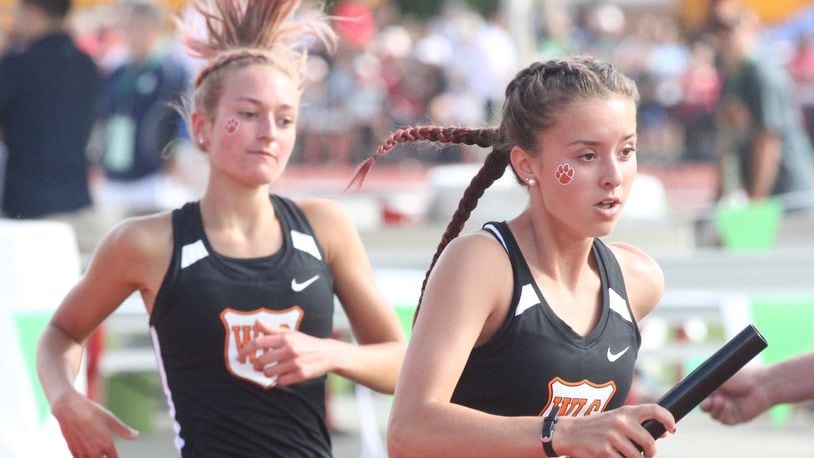RELATED: Coronavirus coverage
“With an athletic event, there are numerous stakeholders involved,” Dellapina said. “Safety must be taken into consideration for students, parents, coaches, trainers, officials, scorekeepers and fans. Sports are very important to all of us, especially our students, and the emotional component of competition sets it apart from other aspects of our educational system. It is a sad situation, but if we learn any lesson from athletics, it is that a person has to handle adversity.”
He said spring coaches would still be paid during this time and confirmed activities to recognize senior athletes, including a virtual option, are in the planning stages.
At Middletown, director of athletics J.D. Foust said spring coaches would receive a prorated salary based on work they put in before DeWine signed a stay-at-home order in March.
He also said all spring participation fees had been credited or reimbursed.
RELATED: Schools to finish the year distance learning
Looking ahead, it is unclear when coaches and athletes will be allowed to get together for formal activities.
OHSAA executive director Jerry Snodgrass indicated the bylaw limiting coaches to 10 days of summer coaching could be lifted, though that would be based on guidelines from health experts and the state.
Foust said most fall sports would likely be able to have normal seasons if regular practices were able to begin by around Aug. 1 – with the exception of football.
“A far as soccer, volleyball, cross country, tennis, golf and all that, I think it’s foreseeable to get back up and running August 1, which is usually the first date anyway for those sports,” he said. “It shouldn’t be a problem that by the 15th or 20th they should be able to get up and be full-go in games.”
Dayton Public Schools Director of Athletics Shawna Welch agreed football players could need more lead time to the season, but she also hopes to see more time for everyone.
“I appreciate the OHSAA having the forethought to say that 10-day rule needs to go,” Welch said. “Because they could very easily just keep that in.
“I think if coaches are in communication with their athletes, giving them some workouts and conditioning things they can do at home, even if they don’t have a weight room, even if they don’t have weights, there’s things that they can do to work on their cardio, development of muscles and those kind of things. In that case it’s not going to be as good but it’s it’s the best that we’ve got right now.”
Especially if some of the workout time lost in the winter and spring can be made up in June and July.
“If we get two full months, that would be wonderful,” she said. “We could pull off our first game and have no problem. I think we could probably go maybe as late as the end of June – the first of July – and be ready for that first game, but that that would be pushing it, especially in football.
“Football is the one that I’m concerned about having the most time because it’s just such a taxing sport on the body as a whole. So we want to make sure you know that kids have had an opportunity to strengthen and know proper techniques and those kind of things.”
The cancellation of spring sports in Ohio for 2020 was made all but certain when Ohio Gov. Mike DeWine announced schools in the state will not reopen this school year but instead finish with remote learning in hopes of containing the spread of the coronavirus.
Following that announcement, the OHSAA informed members of its decision, though it had previously said sports would be canceled if schools did not return to in-person learning this school year.
The cancelation of spring sports comes after winter tournaments were paused and then canceled near the beginning of the outbreak of COVID-19, the disease caused by the new strain of coronavirus.
A no-contact period for all interscholastic sports is in effect until May 3 but could be extended.
Snodgrass said in a release aspects of fall sports that begin in the summer are being evaluated.
“July is a very physical month for our student-athletes entering fall sports, so we have already started looking at, if this continues through the summer, we’ll have the potential of having a lot of kids who haven’t had the physical activity that they would normally have going into a fall season,” Snodgrass said. “So for the health and safety of everyone, we have to look at the acclimation periods going into the fall, if that happens. We have to be prepared for that.”
About the Author
